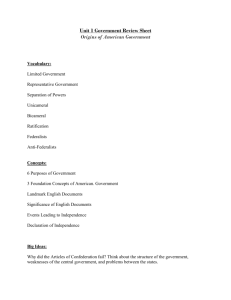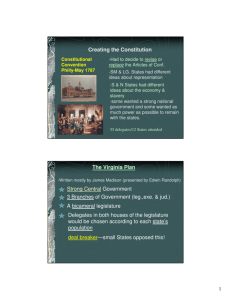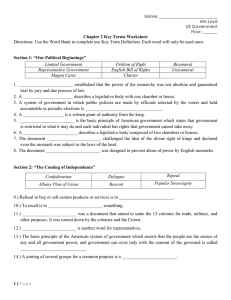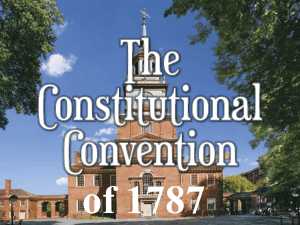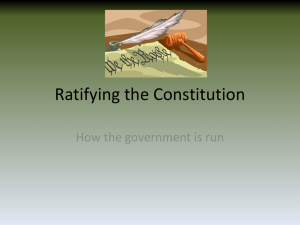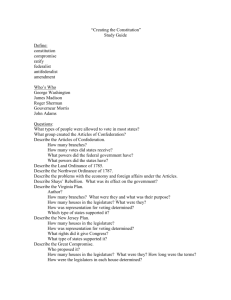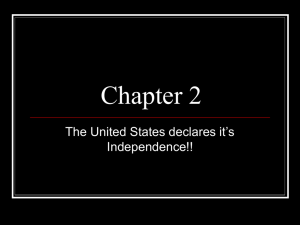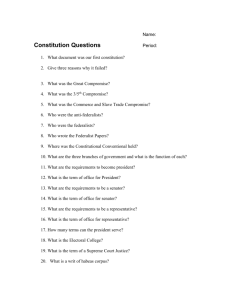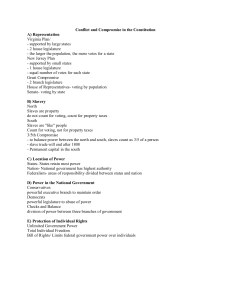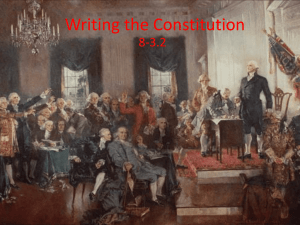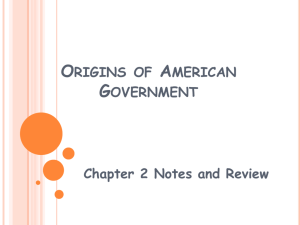Unit 1.2 Essential Questions Vocabulary Activity
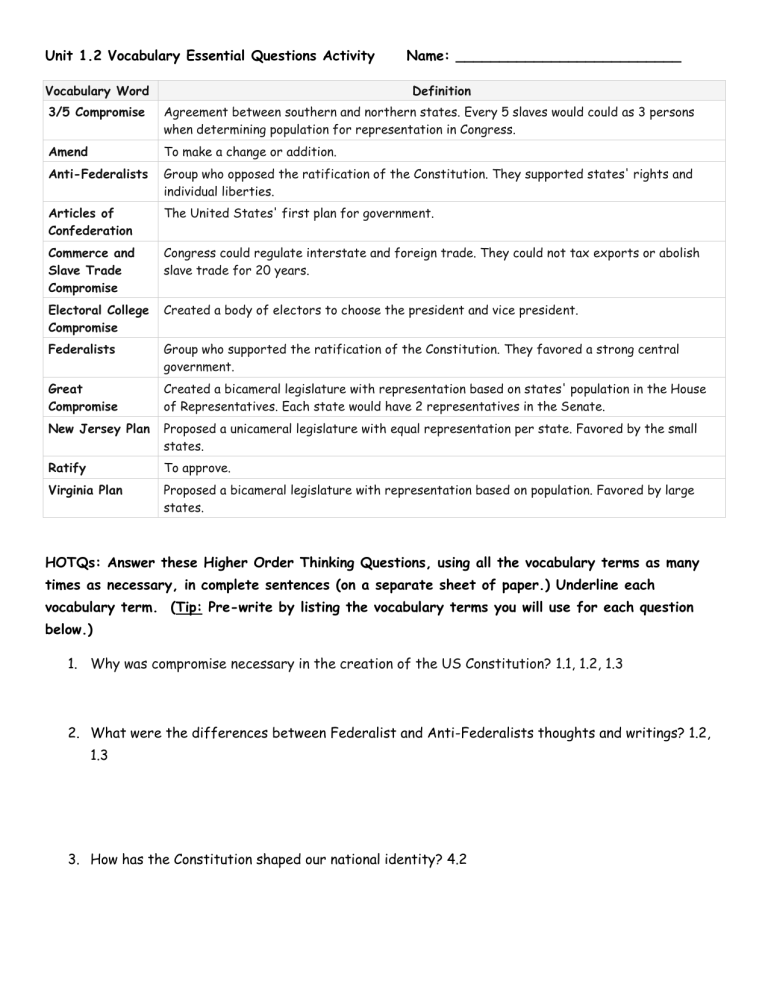
Unit 1.2 Vocabulary Essential Questions Activity Name: __________________________
Vocabulary Word Definition
3/5 Compromise Agreement between southern and northern states. Every 5 slaves would could as 3 persons when determining population for representation in Congress.
Amend To make a change or addition.
Anti-Federalists Group who opposed the ratification of the Constitution. They supported states' rights and individual liberties.
Articles of
Confederation
Commerce and
Slave Trade
Compromise
Electoral College
Compromise
The United States' first plan for government.
Congress could regulate interstate and foreign trade. They could not tax exports or abolish slave trade for 20 years.
Created a body of electors to choose the president and vice president.
Federalists
Great
Compromise
Created a bicameral legislature with representation based on states' population in the House of Representatives. Each state would have 2 representatives in the Senate.
New Jersey Plan Proposed a unicameral legislature with equal representation per state. Favored by the small states.
Ratify To approve.
Virginia Plan
Group who supported the ratification of the Constitution. They favored a strong central government.
Proposed a bicameral legislature with representation based on population. Favored by large states.
HOTQs: Answer these Higher Order Thinking Questions, using all the vocabulary terms as many times as necessary, in complete sentences (on a separate sheet of paper.) Underline each vocabulary term. (Tip: Pre-write by listing the vocabulary terms you will use for each question below.)
1.
Why was compromise necessary in the creation of the US Constitution? 1.1, 1.2, 1.3
2.
What were the differences between Federalist and Anti-Federalists thoughts and writings? 1.2,
1.3
3.
How has the Constitution shaped our national identity? 4.2
